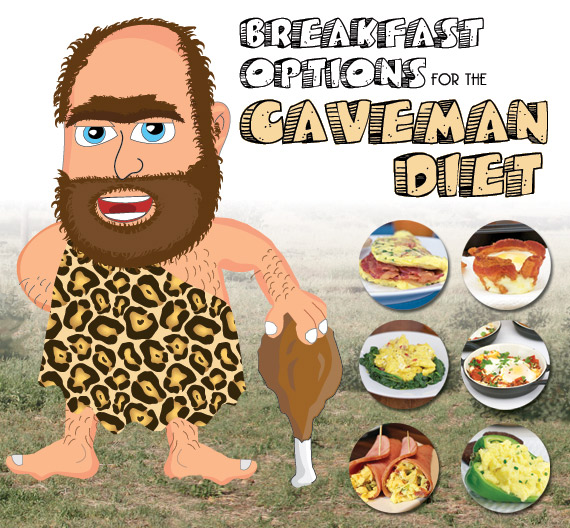The Caveman Diet: Everything You Need to Know

What is the Caveman Diet?
The caveman diet is a dietary plan that aims to mimic the eating habits of our prehistoric ancestors. The diet focuses on whole, unprocessed foods that were available to humans during the Paleolithic era, which dates back to approximately 2.5 million to 10,000 years ago. The diet consists of meat, fish, fruits, vegetables, nuts, and seeds while avoiding processed and refined foods, grains, dairy, and legumes.
How Does the Caveman Diet Work?
The caveman diet works by eliminating processed and refined foods from your diet, which are high in sugar, salt, and unhealthy fats. These foods are linked to various health problems, including obesity, diabetes, and heart disease. By replacing these foods with whole, unprocessed foods, you consume more nutrients and fewer calories, which can lead to weight loss and improved health.
What Are the Benefits of the Caveman Diet?
The caveman diet has several benefits, including:
- Weight loss: The diet is low in calories and high in protein, which can aid in weight loss.
- Better digestion: The diet is high in fiber, which can improve bowel movements and reduce constipation.
- Reduced risk of chronic diseases: The diet is low in sugar and processed foods, which can reduce the risk of chronic diseases such as diabetes, heart disease, and cancer.
- Improved energy levels: The diet is high in nutrient-dense foods, which can provide sustained energy throughout the day.
What Are the Drawbacks of the Caveman Diet?
The caveman diet has some drawbacks, including:
- Restrictive: The diet can be difficult to follow, especially for those who are used to eating processed and refined foods.
- Expensive: The diet can be expensive, as it emphasizes whole, organic, and grass-fed foods.
- Limited food choices: The diet eliminates certain food groups, such as dairy and grains, which can limit food choices.
- Nutrient deficiencies: The diet can be low in certain nutrients, such as calcium and vitamin D, which are found in dairy products.
How to Follow the Caveman Diet?
To follow the caveman diet, you should:
- Eat whole, unprocessed foods such as meat, fish, fruits, vegetables, nuts, and seeds.
- Avoid processed and refined foods such as sugar, flour, and vegetable oils.
- Avoid grains, dairy, and legumes.
- Choose organic, grass-fed, and pasture-raised foods whenever possible.
Sample Meal Plan
Here's a sample meal plan for the caveman diet:
| Meal | Food |
|---|---|
| Breakfast | Scrambled eggs with spinach and avocado |
| Lunch | Grilled chicken salad with mixed greens and olive oil dressing |
| Dinner | Grilled salmon with roasted sweet potatoes and asparagus |
FAQ
Is the caveman diet safe?
The caveman diet is generally safe for healthy individuals. However, it may not be suitable for everyone, especially those with certain health conditions such as kidney disease or gout. It's important to consult with a healthcare provider before starting any new diet.
Can I eat dairy on the caveman diet?
No, the caveman diet eliminates dairy products, as they were not consumed during the Paleolithic era. However, some people choose to include raw, full-fat dairy products in their diet.
Can I eat grains on the caveman diet?
No, the caveman diet eliminates grains, as they were not consumed during the Paleolithic era. However, some people choose to include gluten-free grains such as quinoa or rice in their diet.
Can I eat legumes on the caveman diet?
No, the caveman diet eliminates legumes, as they were not consumed during the Paleolithic era. However, some people choose to include soy products in their diet.
Conclusion
The caveman diet is a dietary plan that focuses on whole, unprocessed foods that were available to our prehistoric ancestors. The diet has several benefits, including weight loss, improved digestion, and reduced risk of chronic diseases. However, it also has some drawbacks, such as being restrictive and expensive. If you're interested in trying the caveman diet, make sure to consult with a healthcare provider first.
